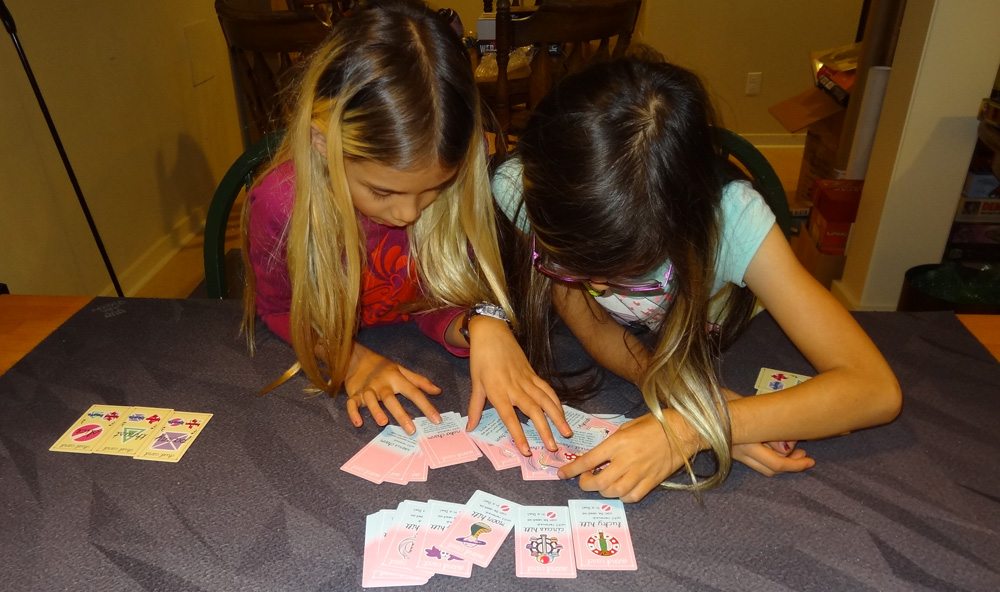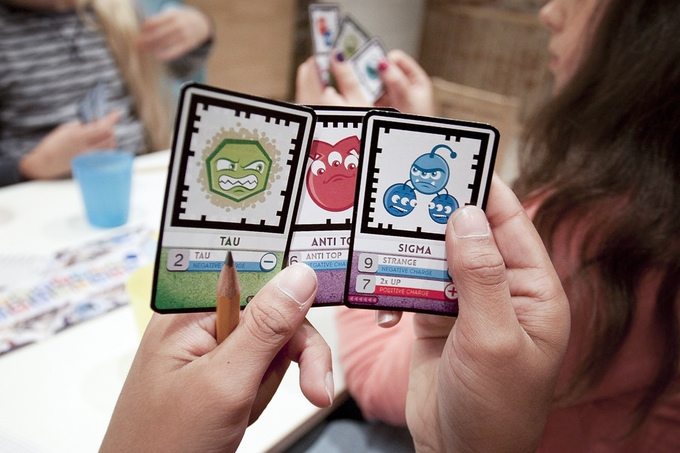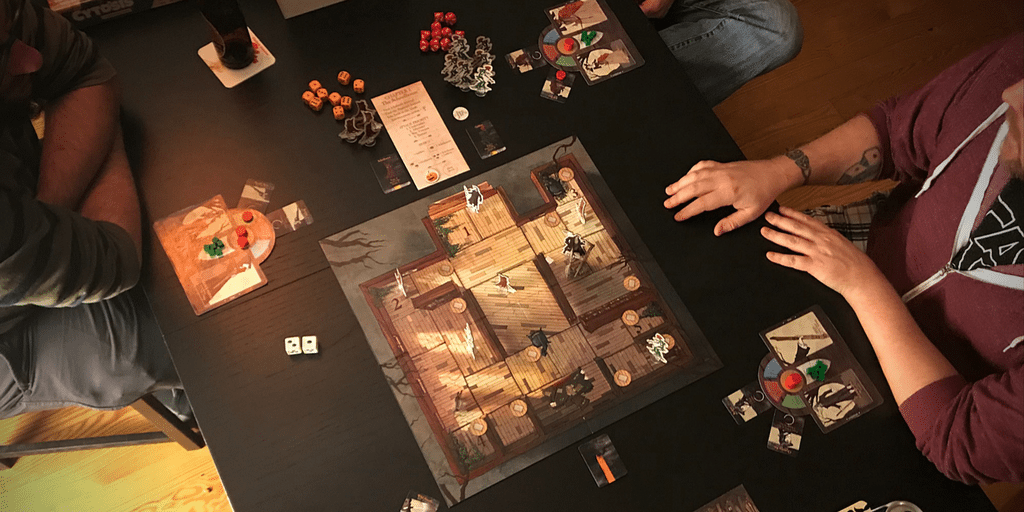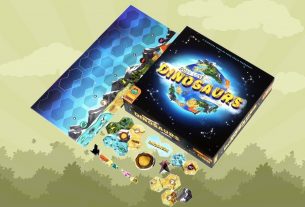There are always a bunch of tabletop projects that I’m following on Kickstarter, and I don’t have time for a full review of each one. Here are a few that are worth checking out–Ken has mentioned some of these in his lists, but I’ll provide just a little more detail.

If you love fancy custom dice, here’s a gorgeous set of polyhedral dice for you. Paizo and Q-workshop have teamed up to make these solid metal dice for Pathfinder. Of course, you can use these for any game you want, but they have the Pathfinder “P” prominently featured on each die. The details on these are incredible, but Q-workshop has the experience to pull it off.
Of course, all-metal dice don’t come cheap. A set of seven (d4, d6, d8, two d10s, d12, and d20) will run $69, or you can get a set five d6 for $64. There are also some pricier options for copper- or gold-coated versions, and since all of the stretch goals have been hit, you’re also getting a set of plastic dice, a dice tower, and linen dice bags thrown in, too. But don’t wait too long–this one has only about two days left to go.

Speaking of fancy dice, here’s another curious option. Boogie Dice are self-rolling, sound-activated dice. Each one has a vibration motor inside, LEDs that light up, and a microphone. Clap, and the die jumps around and starts rolling. I actually got to play around with a loaner prototype, though since it wasn’t a final production model there were some kinks that made it a little trickier–like the charger was just a cord with bare wire tips rather than the nice base you see pictured above.
The die works really well on a hard surface, jumping and clattering after you clap or bang on the table, though it doesn’t have the kick to jump off my padded Quiver gaming mat. If you don’t like the sound of hard plastic on wood, that may not work for you. But it is pretty fascinating to watch, and my kids got a huge kick out of it. The die can be programmed for different behaviors by playing special tones while it’s on–for the prototype I only had two modes and a “shut off” sound, but the final product will have an app that lets you customize the behavior yourself. I could see that as having some interesting potential; not only is it a die that can roll itself, but it can roll itself after particular programmed intervals, serving as both a randomizer and a timer.
The Bots Battleground game is the first game designed specifically for the Boogie Dice, and it’s a fast-paced game about playing robots to attack and defend before the die jumps and signals the end of the round. I think the prototype die’s timer was a bit short and that affected our ability to play the game somewhat, but it’s an interesting concept. I think the real potential for the Boogie Dice, though, is in the app. Once gamers are able to program the dice themselves, I imagine there will be all sorts of creative uses and other games that arise.
As you might guess, robotic dice are also not cheap: about $20 per die, depending on whether you get one or two, and which type you buy. But if you’ve got some ideas cooking about how to use them, that just might be worth it. The project is already fully funded and is working on stretch goals, including a big $200k stretch goal to add a d20 Boogie Die.

Tiny Swords is an adorable-looking card game about dueling with tiny swords. The game uses a rock-paper-scissors mechanic (thrust, slice, parry) but you also get sword parts: blades, hilts, and charms. Blades and hilts can also be used as one of the attacks, but the charms are what really mix it up. Each charm grants you a special ability–some are permanent abilities until you lose the charm; others activate when the charm is removed.
The goal of the game is to find and remove all three charms from your opponent’s hand. There are several modes of gameplay–one uses cards to form a map, and you and your opponents move around trying to capture each other’s bases. It’s a really cute game and my daughters spent a lot of time poring over all of the different sword parts (the prototype had illustrations on about half of them). Gameplay felt a little light to me so it’s more of a quick casual game than heavy strategy. But it’s also a game that can be played even when you don’t have table space–the basic game mode can be played with the cards entirely held in players’ hands.

That title probably strikes fear into the heart of any grad student, right? But this is actually a science-based cooperative game designed for families, so don’t stress too much. Well, maybe a little.
The game uses a smartphone or tablet as a particle collider, using AR to bring the various cards to life. Your goal is to deduce the special properties of these various subatomic particles by doing experiments. The app will randomize the properties each game, and you use the phone to combine two particles to find out some results.
I haven’t gotten to play this one myself, but I’m always curious about games that combine technology and analog play, and I like that Publish or Perish isn’t just science-themed but actually encourages kids to use the scientific method to play the game itself. I do hope they get a good copy editor before the game is published, though.
I’ve written about using gaming to teach STEM concepts, and here’s one more example. Src:card is another game that’s about programming, but it’s definitely a bit more advanced than Robot Turtles. In this one, you and your opponent are both programming giant robots and trying to hack into the other robot’s defenses. Your own robot will have various hardware and software defenses. But then you’re also coding an attack, using if/then statements, loops, and branches to take down those defenses in the right order. The base game ($20) is for only two players, but there’s also a DEFCON2 edition ($35) that includes the expansion for 3-4 players.
New to Kickstarter? Be sure to check out our crowdfunding primer.





